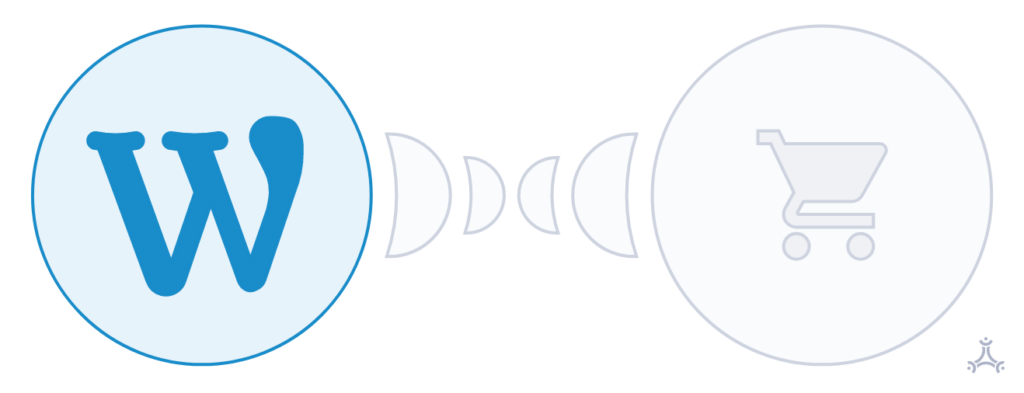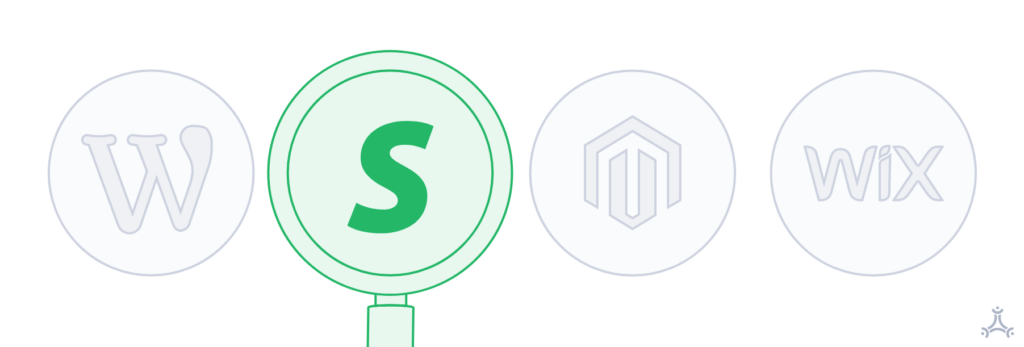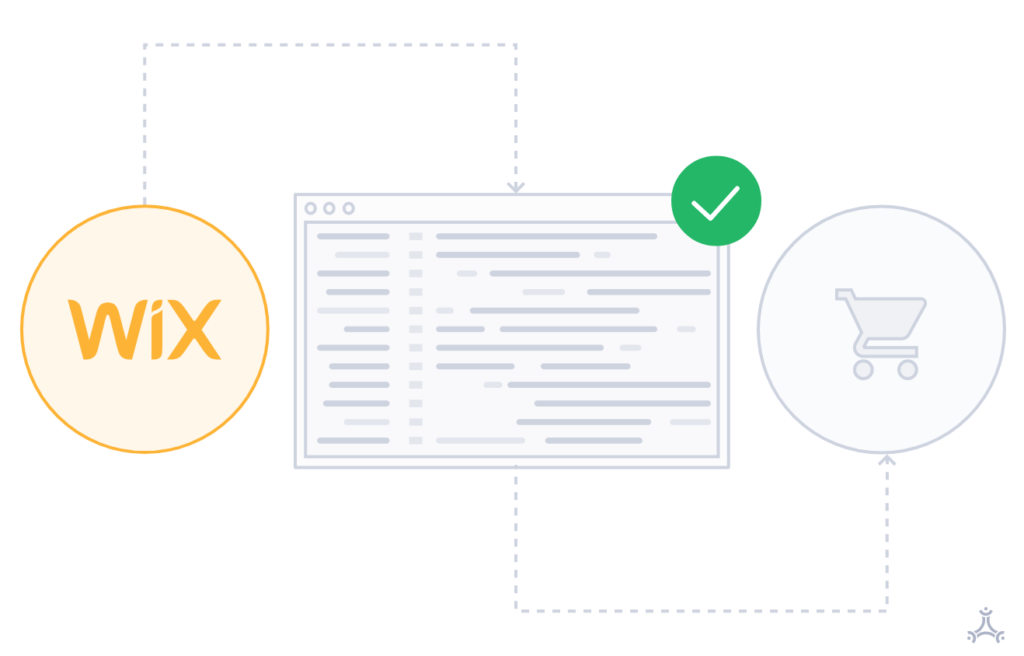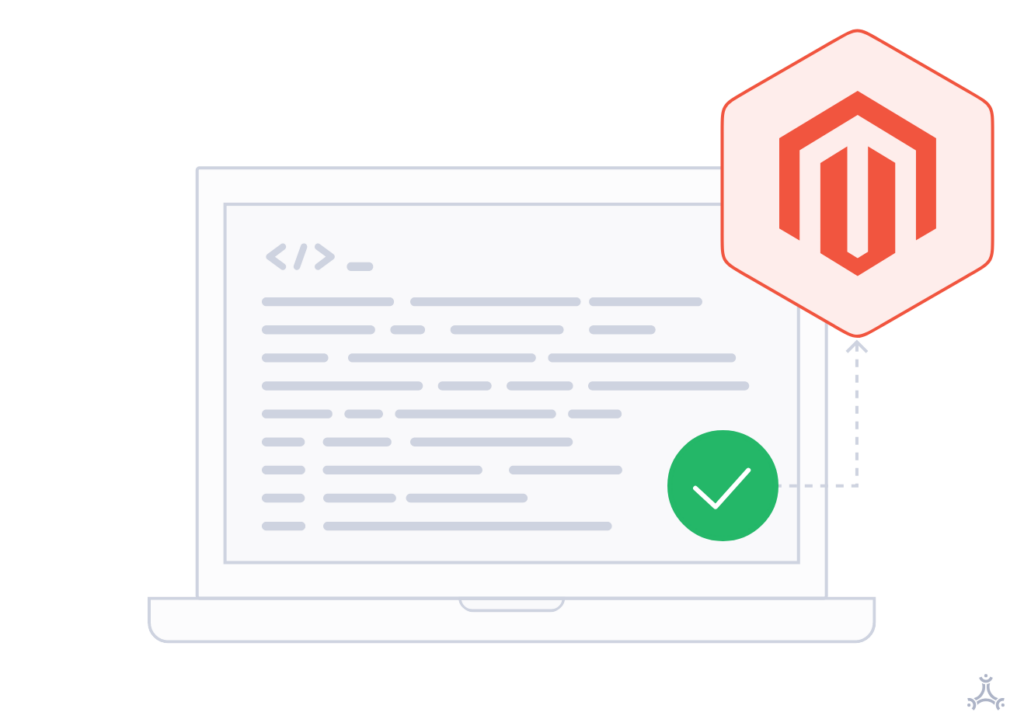When it comes to choosing the right eCommerce platform, there are many factors to be considered before making a decision.
It’s perfectly clear that to have a fully functional website that will serve your future customers by prompting an excellent shopping experience, you need an expert specialized in the platforms you’ve decided to use.
Either way, a professional developer is required in any case if you want to avoid mishaps and technical problems from the beginning.
For example, if you choose to use WordPress for eCommerce, a very intuitive choice would be to hire WordPress developer because there are some WordPress how to’s that only the most experienced developers know.
The same goes for Shopify – if it is your platform of choice, you will need to hire Shopify developer to build your online store.
To further elaborate on the subject, I want to share a deeper analysis of the top most commonly used eCommerce website builders:
- WooCommerce WordPress
- Shopify
- Wix
- Magento
Table of contents
Wordpress eCommerce

According to some of the most recent research, more than 39% of the world wide web is powered by WordPress.
If we look at the number of websites that only use a CMS, the numbers almost double, with WordPress having a market share of 64.1%.
These numbers prove once again that WordPress is one of the most popular website builders.
WordPress eCommerce offers an elegant solution called WordPress WooCommerce, whose basic features come free of charge when it comes to online stores.
Let’s take a peek at what advantages WordPress eCommerce offers and whether or not it is the solution you need.
Pros
WordPress is a website builder that offers many benefits and one especially useful function: the ability to be used for eCommerce purposes.
Moreover, one reason why WordPress is so popular is that it can be molded according to one's needs. The fact that it is open-sourced is the single culprit for the extreme flexibility of the WordPress website builder.
The most significant part of WordPress's popularity is owed to its SEO friendliness. For a website to rank in the highest possible position, it's essential to optimize the website's overall user experience.
Moreover, the factors considered essential by Google for achieving a better overall user experience are related to page loading, visual stability, and interactivity – the holy trinity of a website more commonly known as the Core Web Vitals. With WordPress, optimizing for these factors is easy and straightforward.
| The original WordPress eCommerce feature is powered by the WooCommerce WordPress plugin. |
| WordPress for eCommerce offers a bunch of extraordinary plugins that will provide some amazing features on your online store, like shipping calculations and foreign currencies. |
| Easy integration with other plugins. |
| Templating options, both free and premium ones. |
| Simplified web development. |
| Extensive online community. |
Cons
Although WordPress for eCommerce has a pretty easy interface and everything is very straightforward, some users have difficulties using the WooCommerce WordPress plugin due to navigation.
Namely, navigating through the development, design, or maintenance of WordPress and WordPress WooCommerce can be challenging for those who don't have an IT background.
Another reason for facing troubles is that the backend is inconsistent because of the many customization options. To be more precise, because every backend is a story of its own, people with no IT background can find it difficult to manage the backend as there aren't as many custom backend examples online.
To avoid this issue, the best recommendation is to consider hiring an expert WordPress developer.
| Most plugins are paid. |
| You'll have to pair the plugins carefully, just as some of them don't play out, while some have similar features that you don't need both. For example, the two possible situations you should look for are not choosing plugins with similar features. Nevertheless, both plugins may have a different so-called main feature. It would help if you always looked for overlapping features to get the most of a plugin. The other situation is to have two plugins that give conflicting signs. Here's where the problem starts: the first plugin wants to put an order in the "Complete" field, and the second one prevents that from happening. |
| Sometimes if you have too many plugins can really slow the speed of your website or online store. |
WordPress Offers Hundreds Plugins, Tools, and Themes
One of the main features that made both WordPress and WooCommerce WordPress popular in the first place was the extensive choice of themes, plugins, and tools available for usage.
Even though this makes WordPress very popular, I must emphasize that custom-made solutions in WordPress are the ones that answer every specific need of the client.
On the other hand, the themes and templates are always a choice when the budget is tight.
However, you should stop for a moment and consider whether you are willing to sacrifice the functionality of your online store for the sake of investment money.
WooCommerce Themes
Keeping in mind that not all WordPress themes will be completely compatible with the WordPress eCommerce function and much less with WordPress WooCommerce, I made a list of the top ten most popular WooCommerce WordPress themes rated by users on the internet.
- Astra WooCommerce Theme
- Neve
- OceanWP
- Divi
- SeedProd
- Ultra
- Online Shop Pro
- Outfitter Pro
- Storefront
- Nozama
These are just some of the WordPress eCommerce themes that are fully compatible with WordPress WooCommerce.
However, the popularity of these themes doesn't mean that they should be part of your web solution as, ultimately, everything is scaled to your business's needs.
That is why a custom-made WordPress eCommerce site is always a better solution. The site will answer specifically to the needs of the targeted buyers while being unique, fast, and optimized for the target buyer's persona.
Also, you can improve the performance of your WordPress eCommerce themes by using plugins. Some of the WordPress plugins are created to enhance the security of your web solution. In contrast, others are made to speed everything up or offer additional features like more payment options.
You can enhance your WordPress WooCommerce store with the help of some tools, usually some third-party integrations, that will help to grow your business more efficiently.
Pricing
Although WordPress, as well as the WordPress eCommerce platform, is technically free of charge because the platform is open-sourced, there are some expenses you will need to consider before starting the development process.
Some of these costs include:
- Paid premium or custom-made themes - the costs start as low as $50 and can go to some whopping sums of $10k per custom-made theme, everything depending on the client’s needs
- Paid WordPress eCommerce plugins - the typical cost can vary from $0 to $129 per year
- Premium support that can go up to $150 per month
- Updates of premium plugins and premium themes which price range depends on the provider of the service but can go up to several hundreds of dollars
Who is it best for?
WooCommerce WordPress plugin might be the most intuitive platform for your online store, especially if there are physical products in the middle. The main reason is that WooCommerce WordPress offers a ready-to-use solution that can fit in thousands of products and the best part is that you can still customize it according to your needs.
Shopify

Covering nearly 11% of all eCommerce market share, Shopify is the third-largest online shop builder globally. You can use the eCommerce platform both online and offline in the building process of your online store.
Shopify offers the advantage of implementing the platform concept both online and in your traditional brick-and-mortar store. The idea is to set your store online with Shopify eCommerce and then use the Shopify POS for in-person purchases.
Shopify is not your usual store builder that will only help you launch and sell your products, but the platform can make your business reach the sky if used right.
The specially designed Shopify APIs, as well as the Shopify App Store, are here to ease out the process of store customization or help you build everything up from zero.
Pros
While Shopify is arguably one of the eCommerce platforms currently available for usage, the real question here is whether Shopify eCommerce is actually the best fit for you.
The Shopify platform has more advantages than disadvantages. However, every business has its own needs and understanding the key advantages and disadvantages of every store builder might be an important step in your decision-making process.
| Shopify offers a quick development process and easy maintenance. |
| Provides enough security for you to deal with some sensitive customer information like the billing details in the safest possible way. |
| You don't have to deal with PCI compliance. Instead, Shopify does it for you. |
| Their customer support team is available all around the clock. |
| The platform and the themes provided are mobile responsive, meaning that you'll have a great-looking store on all devices. |
| Shopify and all the themes it provides are entirely customizable. |
Cons
One of the not-so-many disadvantages of Shopify is that some features are only available to businesses with the Shopify Plus plan like:
- fast checkout
- customizable checkout
- higher conversion rates with Shop Pay
- built-in AR, video, and 3D media on product pages
- managing everything from the Shopify admin page, all your stores, staff accounts, and automated workflows
The most interesting thing about this Shopify Plus plan is its price tag of $2,000 USD per month. Another thing that can become quite a problem for the SEO of the whole store is that creating sub-categories in Shopify is not an easy task.
No matter that Shopify has a blog section as a default feature, getting your non-commercial content looking the way you've imagined can also be quite tricky, which can be a problem for the SEO specialist.
Shopify Offers Hundreds Plugins, Tools, and Themes
The nine eCommerce free themes provided by Shopify and each one of them having a couple of variants give you a good set of templates to choose from.
However, if the free options are not appealing to you, one can always go for the premium option, i.e., a paid theme.
The good news is that you have 70 themes to choose from that are fully responsive, just as the free themes created from the Shopify dev themselves.
While Debut, Simple, and Debutify might be the developers favorite free Shopify themes, check out some of the developers’ most popular premium picks:
- Galleria
- Streamline
- Context
- Venue
- Handy
- Modular
Furthermore, check the nine best Shopify tools for 2021:
- Exchange
- Hatchful
- Oberlo
- Slogan Maker
- Finance Calculators
- Burst
- Business Name Generator
- Kit
- Image Resizer
Pricing
Shopify has four basic plans in their offer, plus the Shopify Plus plan. With that said, I can see that Shopify has a program made for every pocket and every business need.
- The Shopify Lite plan costs $9 per month
- The Basic Shopify costing $29 per month, offers slightly better features than the Shopify Lite
- Plain, old "Shopify" costs $79 per month
- The Advanced Shopify version almost triples the price of the Shopify plan at $299 per month
- The special Shopify Plus plan offers custom pricing, often beginning at $2000 per month
Who is it best for?
The Shopify eCommerce platform is built to be inclusive for everyone, from beginners that know very little about coding to experts that can do magic. Shopify makes an excellent option for two of the overall four eCommerce types: B2C (business-to-customer) and B2B (business-to-business).
The main reason why Shopify is preferred by most businesses is that the platform makes it easy for companies to manage several eCommerce stores from only Shopify B2B websites.
Wix

Powering roughly 2.5 percent of all websites built with web builders, Wix lets you design and create a fully customized site or online store without a line of code.
Keeping in mind that the Wix platform itself runs in the cloud, there is nothing to be installed on the server you're hosting.
The whole process of creating your own Wix site, as well as the maintenance, can be done only via a web browser.
The web builder uses customizable templates, i.e., themes and an HTML5 drag and drop builder with everything included – apps, image galleries, vectors, fonts, etc. However, a major characteristic that lacks with the Wix platform is that it doesn’t offer SEO-optimised solutions.
Pros
The Wix website builder has drastically improved in the last couple of years and now offers some really extraordinary benefits like:
| Tons of pre-made themes available to choose from at any time. |
| Web development is made easy with Wix's drag and drop interface. |
| Wix App Market offers a number of apps, Wix business solutions, and tools. |
| Wix eases out the whole process of digital marketing. |
| Wix has all the tools you need to create exceptional social media content. |
| As Googles works on encouraging site owners to use SSL, Wix has started to offer the service of HTTPS free. |
| The Wix web builder platform offers competent customer support that operates all around the clock. |
Cons
Here's the thing: Wix is terrible with SEO. Plain and simple.
Although you get access to their so-called SEO Wiz, this tool uses some really outdated optimization techniques. Things like page speed and crawlability are some of the most essentials things for SEO. The bad news is that Wix doesn't let its users optimize these crucial aspects of SEO.
With that said, if your SEO requirements are minimal and basic, Wix would probably be a good choice.
Other disadvantages of Wix that might annoy you are:
| There are currently no Wix plans that include unlimited bandwidth or storage. |
| The drag and drop designed templates can kill your creativity or at least limit it. |
| The free Wix plan will force some Wix branding on your store or website. |
| Once your site or store is on Wix, it's on Wix, and you will not be able to make a transfer. |
| The fact that Wix is not as SEO friendly as promoted. |
Wix Offers Hundreds Plugins, Tools, and Themes
All the additional features that Wix offers can be found on the Wix App Market. You'll definitely find what you're looking for, keeping in mind that there are several different business app types – starting from some marketing tools and social media networking apps to analytics tools.
Some great apps one can find in the Wix App Market that will most definitely make great a difference to the eCommerce store and will ease your life in the process are:
- Get some detailed insights on how people interact with your website with Visitor Analytics.
- Get some extraordinary tools that will grow your business with POWR.
- Take care of your customer support with the live chat tool - Tidio.
- Use 123 Form Builder as one of the most effective ways to gather information.
- Automate all your accounting with QuickBooks.
- Boost email subscribers with the incredible tool offer by Poptin.
- Level up your Social Media game with Elfsight.
Most of the Wix App Market apps are free to use and can be added to your eCommerce store in a matter of seconds. Moreover, almost all of the apps available are optimized for mobile devices, which will contribute to your site's SEO score and ultimately lead to higher rankings on Google and more organic traffic.
Pricing
Wix has made two basic types of plans available in their offer: website plans and business & eCommerce plans. Furthermore, the website plan set contains four plans, while the business & eCommerce plan set contains three.
Website Plans:
- VIP (first priority support) costs $24.50 per month
- Unlimited (entrepreneurs and freelancers) costs $12.50 per month
- Combo (for personal use) costs $8.50 per month
- Connect Domain (the most basic Wix plan) costs $4.50 per month
Business & eCommerce Plans:
- Business VIP (first priority support) costs $35 per month
- Business Unlimited (entrepreneurs and freelancers) costs $25 per month
- Business Basic costs 8.50 bucks per month
- Connect Domain (the most basic Wix plan) costs $17 per month
Who is it best for?
Everything points to the fact that the Wix web builder is one of the easiest ways to launch your eCommerce store. Although it might not be the first choice for many professional web developers, Wix really does a good job and is an excellent choice of a web builder for many beginners with no or little coding experience.
Magento

With a market share of 0.8% of all known sites, Magento is a PHP-written eCommerce platform. The open-source eCommerce script is using the databases MySQL and Zend PHP. Magento is a fast-emerging and rich-in-features eCommerce platform giving its users the advantage to control almost everything from the site's looks to functionality and content.
Magento Versions
There are three versions of Magento, of which the most popular is the open-sourced Community Edition.
- Magento Community Edition - this version is entirely free of charge
- Magento Enterprise Edition - the paid version
- Magento Go - the hosted on Magento’s servers, which is also paid
Pros
One of the main reasons why Magento is popular is that the eCommerce building platform can help you achieve optimal positioning in search engines. Furthermore, the platform offers other SEO-friendly features like section customization and URL modification on each page, which can alter the meta descriptions on each page and the sitemap, among others.
Magento also offers:
| Optimal scalability as all of Magento's plans are designed to encourage the eCommerce store progression. |
| The platform has a simple and yet fully customizable interface. |
| Huge Marketplace where you can find all kinds of extensions. |
| Enormous online community. |
Cons
The Magento system is pretty big and has a complex structure. That's why you might not be able to manage the whole process of development by yourself. Instead, you would need a team of professionals, i.e., Magento developers and Magento testers. Here emerges another disadvantage of Magento: the cost of development. If you choose the Magento Enterprise system plus the cost of eCommerce store development, the whole project would require a pretty hefty investment.
Pricing
Depending on which version of Magento you choose, the costs can drastically change from zero dollars per year to a whopping $190,000 per year. The free version and the most popular at the moment is the Magento Community Edition or more commonly known as CE.
The other two versions of Magento are both paid. While the Magento 2 Enterprise Solutions Edition – EE and Enterprise Solutions Cloud Edition – ECE licenses usually start at $22,000 and $40,000 bucks, respectively. Both EE and ECE licensing prices depend on the expected annual gross sales revenue of the eCommerce business.
Who is it best for?
The most popular Magento version is the Community Edition which is open-sourced, making it the perfect technology for growing businesses, as well as large businesses and stores. Although Magento is not the most affordable option for an eCommerce store out there, it does have a scalability feature that makes business owners update their store effortlessly.
Magento Offers Hundreds Plugins, Tools, and Themes
The Magento Marketplace has everything you need to enhance and take out the most of your store. Keeping in mind that you can overspend time looking for the right Magento extension that will drive your online sales up, I have evaluated most of the extensions present on the Magento Marketplace just to filter the best ten extensions worth trying.
- Processing of bulk orders and order export with Xtento.
- Easy checkout with Amasty.
- Do some advanced SEO-optimizing with Mirasvit.
- Wyomind Simple Google Shopping.
- Connect your Magento site to eBay, Amazon, and Google Play with M2Epro.
- Increase your sales with Unirgy gift certificates.
- Use the automatic related products feature of AheadWorks.
- Take full control over your shipping options with Shipper HQ.
- Automatically request reviews from your customers with Trusted Shops.
- Offer an extraordinary customer loyalty program with the features of Sweet Tooth Rewards.
Conclusion
Generally speaking, with all the eCommerce platform solutions that exist today, business owners don't need to have previous knowledge and expertise to build an online store.
However, it would be a real lifesaver if you actually had someone with the much-needed expertise to help you out with everything or, even better, relieve you of all stress and difficulties that come with creating an online store.
Surely, the pre-made themes are a real lifesaver that let you focus on the user experience and design of your eCommerce store or website. However, these pre-made themes are much slower than the custom solutions, not scalable, and, of course, used by many others which is a downside if you're looking for uniqueness.
Although there are some things you can customize with pre-made themes – like the website's colors, logo, and some other front-end stuff – there will be some limitations on what you can do with the drag and drop technique. As a result, your website may look unimpressive and one of many.
The best overall solution in which you'll be sure that every one of your expectations is flawlessly implemented is a custom-made eCommerce solution. Moreover, the team working on the project will ensure that your e-store has the optimal website speed and that all the code behind is optimized as much as possible.
Taking all of this into consideration, the most appropriate eCommerce solution for your business depends on your needs. Having listed the four most popular eCommerce solutions, with their pros and cons and important features, now it’s your turn to make a decision.


